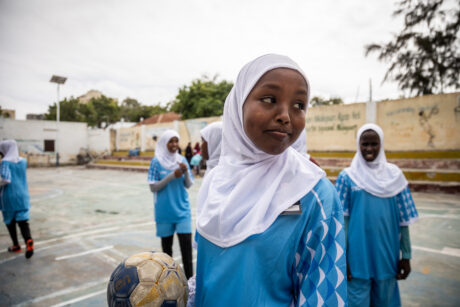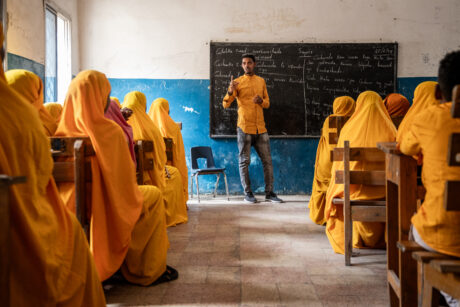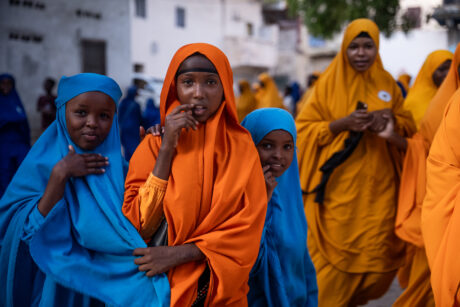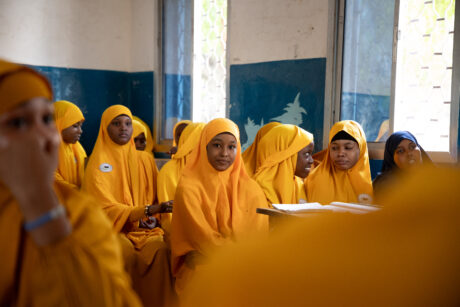Le quinquennat, Bar ama Baro, financé par l'USAID (« Enseigner ou apprendre » en anglais) était un programme complet d’enseignement primaire soutenant les efforts du gouvernement somalien pour créer des espaces d’apprentissage sûrs où les élèves pourraient améliorer leur niveau d’alphabétisation., calcul et compétences socio-émotionnelles.
Les efforts de Bar ama Baro s’appuient sur le nouveau programme national somalien, Plan stratégique du secteur de l'éducation et Plan de développement national-9, tackling the challenging issues facing out-of-school children and youth.
Avec 70 percent of Somali school-age children out of school, Somalia faces a significant challenge in providing access to quality education for its youth. Despite efforts to plan for a brighter future with new national curriculum and education sector strategies, the country struggles to address the complex issues surrounding out-of-school children and youth, including systemic barriers, conflit, and limited resources.
By designing and delivering programming and supporting systemic policy changes, Bar ama Baro and its diverse pool of partners – Sauver l'enfance internationale, ORB International, PLOMB SIL, Réseau d'éducation formelle pour les écoles privées, Académie Hano, Association de secours et de développement Himilo (HIRDA) and Somalia’s Ministry of Education (MoECHE) – expanded curriculum, extended service reach and strengthened learning support to ensure that all children, and especially marginalized children, could access equitable, safe and conflict-sensitive education.
Réalisations du programme
Bar ama Baro expanded access to quality accelerated basic education for Somali children, evidenced by increased enrollment rates and improved attendance records among target populations.
The program aligned programming with the formal primary education system in Somalia, evidenced by the adoption and integration of Bar ama Baro’s curriculum into national education frameworks and policies.
Bar ama Baro strengthened learning support for marginalized children, leading to improved learning outcomes and socio-emotional skills among target populations, as measured by standardized assessments and qualitative evaluations.
The program created equitable, sûr, and conflict-sensitive learning environments for all children in Somalia, as evidenced by positive community feedback and perceptions regarding the safety and inclusivity of educational spaces.
Bar ama Baro supported systemic policy changes to improve education in Somalia, demonstrated by the adoption and implementation of policies that promote equity, sécurité, and accessibility in education at national and local levels.



